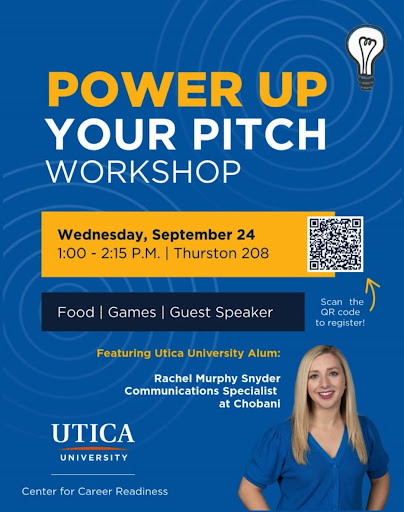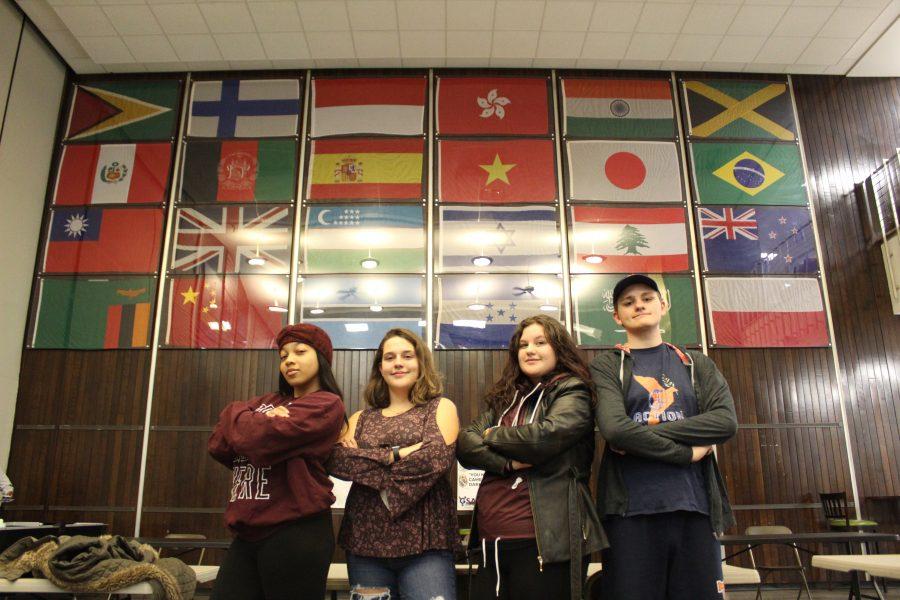Over the last couple of years, UC has witnessed several racial incidents that affected race relations on the diverse campus. As a result, a new student cabinet was created to be in constant communication with President Laura Casamento and assist her on issues of race and equity on campus.
In the last academic year alone, the UC community saw flyers reading “It’s OK to be white” spread around campus, students directing racial slurs at their peers, a dispute between members of the Black Student Union and Campus Safety in Strebel Center and finally, a photo of a student wearing a noose around his neck during a public event.
And while UC’s administration responded to those incidents as “swiftly” as possible, these incidents only harmed race relations on campus.
“You could feel the tension,” sophomore Alma Jasencic said.
Some students felt that community conversations, meetings and emails were not enough. As a result, student organizations and members of the college started to demand more action from the administration to prevent those incidents from happening.
The idea for a president’s student cabinet on equity and inclusion was sparked in the spring of last year after a conversation on racial tensions between Casamento and a group of students.
“They really felt it would be beneficial to have an opportunity to advise me on the racial climate and talk about things that are happening on campus in both good times and times of crisis,” Casamento said.
Shaun Harper’s visit in September also served as the final catalyst for the formation of that student cabinet. The conversations that took place during his town hall on Sept. 12 were “difficult to hear” and that is what motivated Casamento to form a cabinet as soon as possible, she said.
So far, the president’s student cabinet on race and equity has met twice, in September and October, and will continue to meet monthly.
Formed by approximately 20 students, Casamento defined the cabinet as a “very diverse group of individuals who have a real passion for improving climate on campus.”
“It’s an opportunity to celebrate our gift of diversity and talk about how we bring the campus together,” Casamento said. “It’s about dealing with times of crisis and how we move forward with the goals of our strategic plan.”
The group of students have already provided their input in a variety of issues, according to Casamento.
Some of the specific action that has resulted from those two meetings include the creation of the new position of vice president for diversity, equity and inclusion, which will be added this academic year, and the need to include diversity components into all academic curriculum, for instance.
The difference between this advisory cabinet comes with the fact that it is a student-only group and the consistency in which they meet.
“We can’t just come together in times of crisis. We need to address these issues on a continual basis,” Casamento said. “Having access to this committee of students on a regular basis has been very helpful to me.”
Senior Gianna Boone attended both meetings so far, that were apart of the president’s student task force committee. Even though she felt hesitant about its effectiveness initially, now she has changed her mind.
“I feel like students finally do have a voice,” Boone said.
What makes this cabinet different for her is the fact that there is consistency in the meetings and “President Casamento is taking time out of her evenings, taking notes and giving us a lot of room for us to talk about every detail, no matter how small it is,” according to Boone.
After attending the meetings, Boone said she felt motivated because “it’s impossible to complain about something and then not want to be part of the change.”
“It really broke my heart hearing freshmen (students) at Shaun Harper’s town hall saying they didn’t feel comfortable at the college,” Boone said. “I wanted to make sure they had a great experience at UC.”
Since it’s her last year, Boone stated how she wanted to leave an impact at UC before she left.
“I hope this is the impact that I will help leave on the college,” she said. “I feel like change is coming.”
Sophomore Aaron Barsham agreed to say that the president’s student cabinet was a “great way” for students to be in direct communication with the administration to help with transparency, especially regarding the racial issues happening last semester.
However, he had doubts about its effectiveness, adding that there is a problem of “bias” at UC.
“Addressing diversity starts with the administrative policies,” Barsham said. “We need to make them less interpretative and define the terms in the student code of conduct and allow the students to have more say in this. That will stop bias.”
According to Barsham, those implicit biases affect mostly students of color.
He went on to say that there are many leaders at UC working towards creating a better environment for all, which includes Casamento.
“Feedback only has power if the administration is willing to listen to it,” Barsham said.
The norm of white, male, anglosaxon and protestant is becoming a minority in America and students who do not fit within that norm need to be protected from outspoken racism as well as implicit bias, according to Barsham.
Jasenic said she felt like having a student cabinet on race and equity is a great opportunity but it is also “long overdue” based on the events that happened last year.
“I feel like it should have happened before,” said Jasenic, who serves as public relations director for the Black Student Union. “I hope it’s not just a discussion that we keep having.”
Jasenic mentioned the importance of keeping that consistency, not just on behalf of Casamento but also the participation of students.
As a Muslim woman, a Bosnian-American and a member of BSU, Jasenic said she brings different aspects to the president’s cabinet.
“This community that we live in is going to be the next generation who changes the world,” she said. “We need to make sure that when we go out into the real world, we treat everybody fairly.”
When senior Taylor Kuivuluoma first arrived at UC, he was exposed to a level of diversity that he had never experienced before.
However, making friends from different backgrounds “opened his eyes as to how we’re all treated differently,” he said.
“Me being a white male, I get a lot of privileges but my friends here showed me the things they’ve had to deal with,” Kuivuluoma said. “Those aren’t horrible but they are things that I would have never had to experience as a white male.”
Kuivuluoma said he joined the president’s student task force to make sure that the action that is taking place is “actually happening and it’s not there to just make us look good.”
Senior Alexandria Leounis said one of the first steps will be hiring faculty members who better represent the student body.
“It’s going to make a difference in giving a sense of welcoming to certain students so that they can go to somebody who can better understand what they’re going through,” she said.
Leounis added that bringing more faculty of color is a “good step” but nobody is being let go.
“Maybe we need to evaluate closer on who we’re hiring based on issues we’ve seen in the past and look even closer in the students,” she said.
Leounis expressed that she felt “honored” that President Casamento was asking the students to join her.
“I’m sure it will keep going on so that we can have more room for improvement,” she said.
Junior Zhane McKnight said she felt “hopeful” when she was first heard about the president’s student cabinet on race and equity.
McKnight, who transferred to UC in September, said she enjoys the time and room that is allowed for student participation.
Even though she has been at UC for a few months, McKnight said she knew she wanted to make the environment better, which led her to sign up for the president’s student cabinet.
McKnight said she appreciates how structured and consistent meetings are.
“These conversations are things that cannot only happen once,” she said.






































































































































